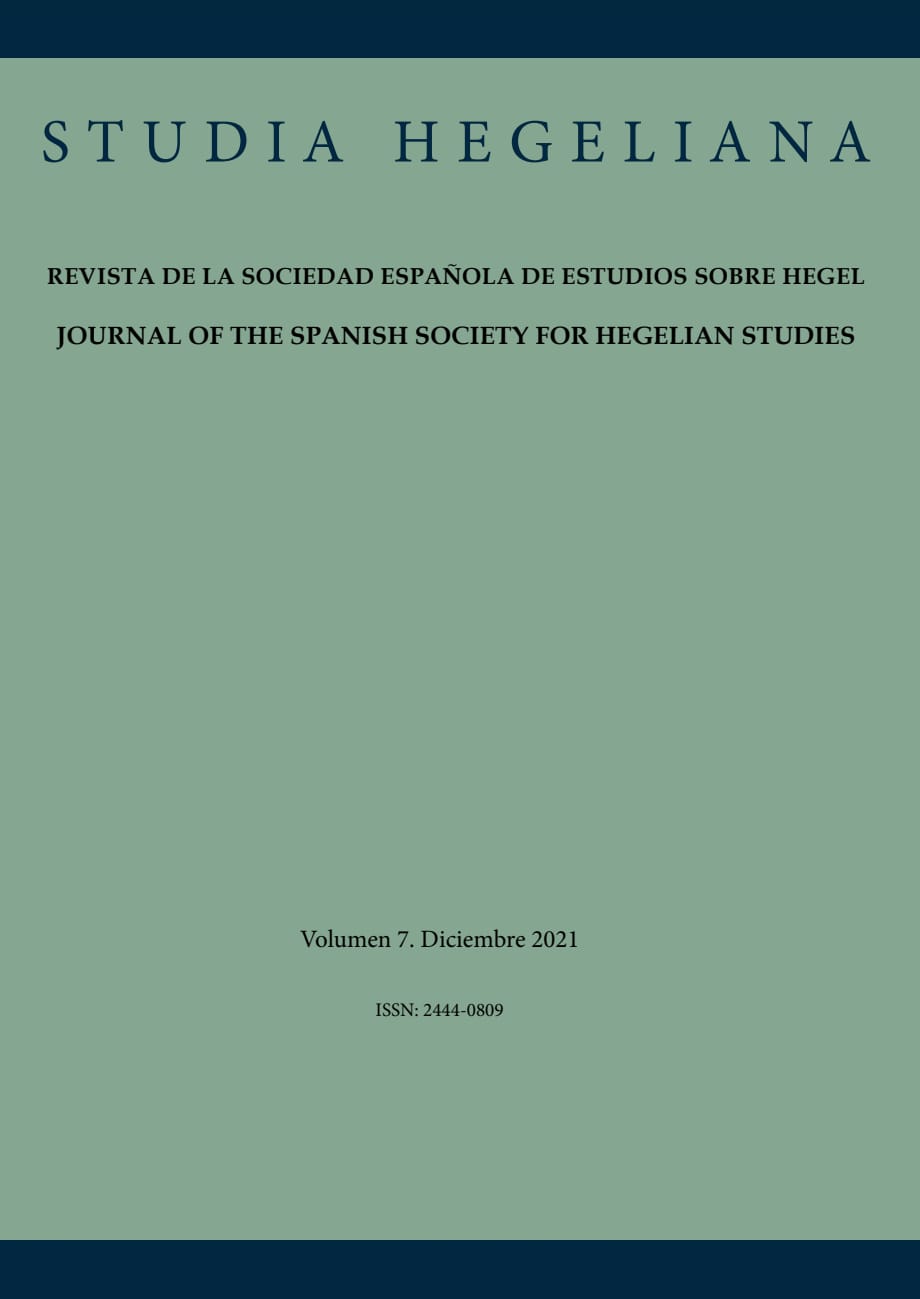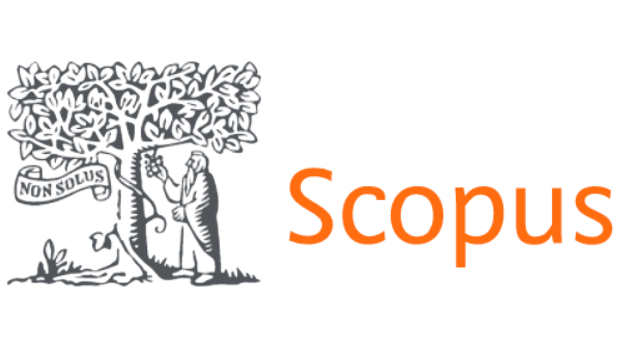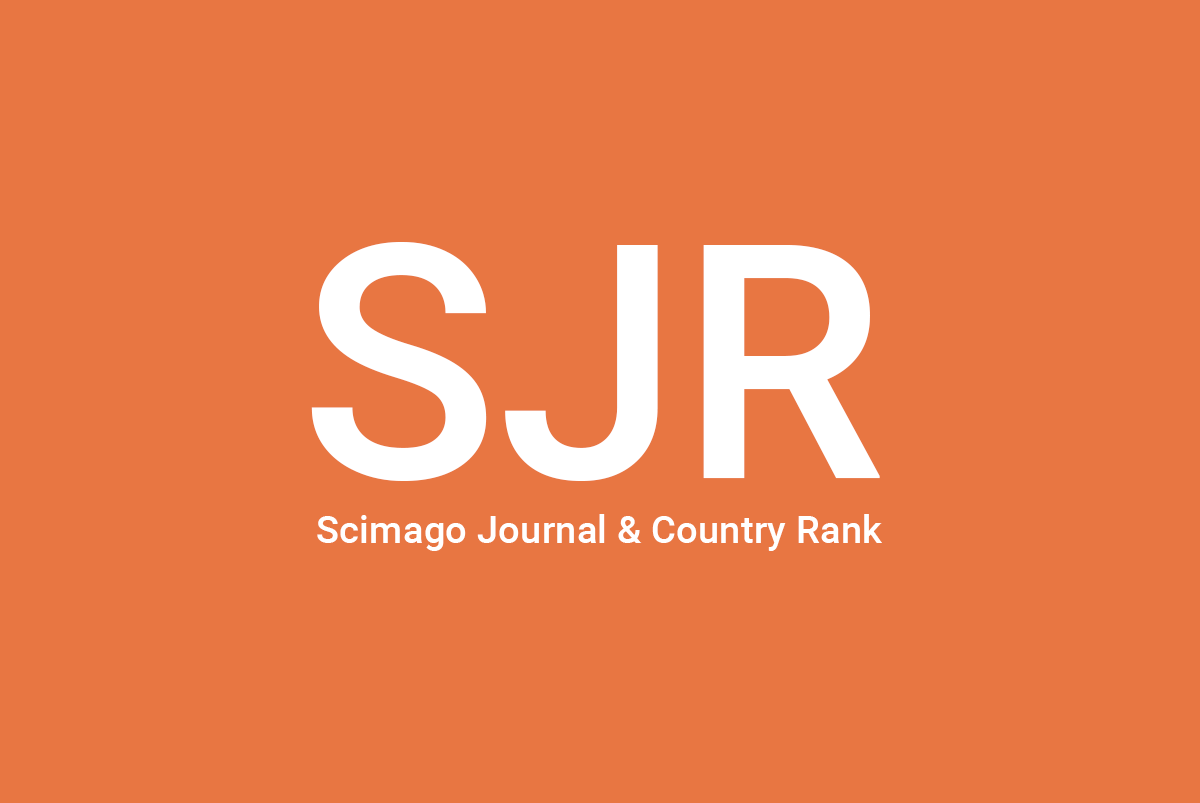The problem of circularity between the Phenomenology of Spirit and the Science of Logic
DOI:
https://doi.org/10.24310/Studiahegelianastheg.v7i.13531Parole chiave:
Circularity, Presupposition, Ground, Science, SystemAbstract
The aim of this article is to discuss the objection of vicious circularity concerning the relation between the Phenomenology of Spiritand the Science of Logic. My argument is articulated in three stages: (i) in the first place, I will provide a historical reconstruction of the debate and I will try to neutralize the objection of vicious circularity; (ii) in the second place, I will examine the latest positions of the Hegel-Forschungabout the issue of a possibly reciprocal presupposition between the PhG and the SL; (iii) in the third place, I will analyze the meaning of a virtuous circularity, by showing its inner relation to a dynamic conception of systematicity.Downloads
Metriche
##plugins.generic.pfl.publicationFactsTitle##
##plugins.generic.pfl.reviewerProfiles## N/A
##plugins.generic.pfl.authorStatements##
##plugins.generic.pfl.indexedIn##
-
##plugins.generic.pfl.indexedList##
- ##plugins.generic.pfl.academicSociety##
- N/A
- ##plugins.generic.pfl.publisher##
- Universidad de Málaga
Riferimenti bibliografici
- Hegel, G.W.F.: Gesammelte Werke (= GW). Herausgegeben von der Nordrhein-Westfälischen Akademie der Wissenschaften in Zisammenarbeit mit der Deutschen Forschungsgemeinschaft. Hamburg: Meiner 1968 ff.
- Briefe an und von Hegel. Band I: 1785-1812. Herausgegeben von Johannes Hoffmeister. Hamburg: Meiner 1952.
- Hegel, G.W.F.: The Letters. Translated by Clark Butler and Christiane Seiler. Bloomington, Indiana University Press, 1984.
Critical Literature:
- Bowman, B. (2017): “Self-Determination and Ideality in Hegel’s Logic of Being”, in: D. Moyar (Ed.) Oxford Handbook of Hegel, New York-London, pp. 220-241.
- Bowman, B. (2018): “Zum Verhältnis von Hegels Wissenschaft der Logik zur Phänomenologie des Geistes in der Gestalt von 1807. Ein Überblick”, in: N. Mooren/ M.Quante (Hrsg.), Kommentar zu Hegels Wissenschaft der Logik, Meiner, Hamburg, pp. 1-38.
- Chiereghin, F. (1994): Introduzione alla lettura della Fenomenologia dello spirito di Hegel. Carocci, Roma.
- Chiereghin, F. (1996): “Storia della filosofia e sistema: Il significato storico-speculativo della trasformazione della metafísica in logica secondo Hegel” in: G. Movia (Ed.), La logica di Hegel e la storia della filosofia. Edizioni AV, Cagliari, pp. 25-47.
- Düsing, K. (1976): Das Problem der Subjektivität in Hegels Logik, Hegel Studien, Beiheft 15, Bouvier, Bonn.
-Ferrer, D. (2009): “Observing Reason in Hegel’s Phenomenology of Spirit”, in: E. Balsemão Pires (Ed.), Still Reading Hegel. 200 Years after the Phenomenology of Spirit, Imprensa da Universidade de Coimbra, Coimbra, pp. 75-86.
- Forster, M. (1998): Hegel’s Idea of a Phenomenology of Spirit. University of Chicago Press, Chicago.
- Fulda, H.F. (19752): Das Problem einer Einleitung in Hegels Wissenschaft der Logik. Klostermann, Frankfurt am Main.
- Giuspoli, P. (2000): Verso la Scienza della lógica. Le Lezioni di Hegel a Norimberga. Verifiche, Trento.
-Habermas, J. (1973): Erkenntnis und Interesse. Suhrkamp, Frankfurt am Main.
- Haym, R. (1857): Hegel und seine Zeit. Verlag von Rudoplh Gaertner, Berlin.
- Horstmann, R.-P. (2014): “Der Anfang vor dem Anfang. Zum Verhältnis der Logik zur Phänomenologie des Geistes”, in: Koch/Vieweg/Schick et al. (Hrsg.), 200 Jahre Hegels Wissenschaft der Logik, Meiner, Hamburg, pp. 43-58.
- Hösle, V. (1988): Hegels System. Der Idealismus der Subjektivität und das Problem
der Intersubjektivität. Band I. Meiner, Hamburg.
- Hösle, V. (1991): Hegel e la fondazione dell’idealismo oggettivo. Milano: Guerini.
- Houlgate, S. (2006): The Opening of Hegel’s Logic. From Being to Infinity. Indiana University Press, Purdue.
- Hyppolite, J. (1997): Logic and Existence. [Translation from the French original by Leonard Lawlor and Amit Sen: Logique et Existence. Presses Universitaires de France, Paris, 1953.]
- Kervégan, J.F. (2008): Hegel e o Hegelianismo. [Translation from the French original by Mariana Paolozzi Sérvulo da Cunha: Hegel et l’hégélianisme. Presses Universitaires de France, Paris, 2005.]
- Kervégan, J.F. (2012): “La science de l’idée pure”, Archives de Philosophie 75 (2012), pp. 199-215.
- Kervégan, J.F. (2014): “La Phénoménologie de l’esprit est-elle la fondation ultime du ‘système de la science’ hégélien?” In: G. Marmasse, A. Schnell (Dir.), Comment fonder la philosophie? L’idéalisme allemand et la question du principe premier. CNRS Editions, pp. 243-264.
- Orsini, F. (2018): “A transformação do lógico numa lógica da filosofia nos três silogismos conclusivos da Enciclopédia”, in: H.Neumann, Ó. Cubo, A. Bavaresco (Orgs.): Hegel y el proyecto de una Enciclopedia Filosófica: Comunicaciones del II Congreso Germano-Latinoamericano sobre la Filosofía de Hegel. Editora Fi: Porto Alegre, 2018, pp. 191-218.
- Pippin, R. (2018): Hegel’s Realm of Shadows. Logic as Metaphysics in the Science of Logic. The University of Chicago Press, Chicago.
-Pöggeler, O. (1973): Hegels Idee einer Phänomenologie des Geistes. Alber, Freiburg und München.
-Puntel, L. B. (1973) Darstellung, Methode und Struktur. Untersuchungen zur Einheit der systematischen Philosophie G,W.F. Hegels, Hegel Studien, Beiheft 10, Bouvier, Bonn.
- Rockmore, T. (1986): Hegel’s Circular Epistemology. Indiana University Press, Bloomington.
- Souche-Dagues, D. (1986): Le cercle hegélien. Presses Universitaires de France.
-Trede, J.H. (1975) “Phänomenologie und Logik. Zu den Grundlagen einer Diskussion”, Hegel Studien 10, pp. 173-209.
##submission.downloads##
Pubblicato
Come citare
Fascicolo
Sezione
Licenza
Esta revista provee acceso libre inmediato a su contenido bajo el principio de hacer disponible gratuitamente la investigación al público. Todos los contenidos publicados en Studia Hegeliana. Revista de la Sociedad Española de Estudios sobre Hegel, están sujetos a la licencia Creative Commons Reconocimento-NoComercia-Compartirigual 4.0 (específicamente, CC-by-nc-sa) cuyo texto completo puede consultar en <http://creativecommons.org/licenses/by-nc-sa/4.0>. Por ello, se permite la generación de obras derivadas siempre que no se haga un uso comercial. Tampoco se puede utilizar la obra original con finalidades comerciales. La revista no se hace responsable de las opiniones vertidas por lo autores de los trabajos que en ella se publican.
Es responsabilidad de los autores/as obtener los permisos necesarios de las imágenes que están sujetas a derechos de autor.
Los autores/as cuyas contribuciones sean aceptadas para su publicación en esta revista conservarán el derecho de autor. Este es no exclusivo de utilizar sus contribuciones con fines académicos, de investigación y educativos, incluyendo el auto-archivo o depósito en repositorios de acceso abierto de cualquier tipo.
Desde el volumen 7 de 2021 la revista Studia Hegeliana ha modificado el copyright. Desde ese año, los autores son los que conservan los derechos de autor.
La edición electrónica de esta revista esta editada por la Editorial de la Universidad de Málaga (UmaEditorial), siendo necesario citar la procedencia en cualquier reproducción parcial o total.







243.png)





















